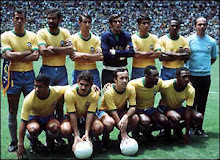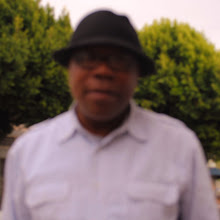Contrary to all the gloomy predictions, South Africa is well prepared for the World Cup – even its soccer team is hitting top form, says Rian Malan By
Rian Malan/Telegraph, UK
In apartheid’s heyday, I played left-half for an all-white soccer team at my whites-only primary school. Photographs show a sorry aggregation of spindly little snivellers, but in our own minds, we were giants. We slew all rivals in our corner of Johannesburg’s white suburbs and made it into the quarter finals of a city-wide tournament, where we were taken out (1-0) by a rival white suburb known as Rosebank.
In South Africa, in the early Sixties, everything was starkly black and white, including professional soccer. “Our” teams had names like Germiston Callies and Durban United. “Their” most famous teams were Kaiser Chiefs and Orlando Pirates. White teams played in segregated stadiums with separate entrances and seating for the various races. Black teams played in the parallel universe to which blacks were relegated by apartheid. The twain were forbidden to meet, which is why differing racial capacities (as manifested on the football field) were an object of heated schoolboy debate.
Didier Deschamps to take over at MarseilleIn my soccer memories, my sweat-drenched comrades and I are lying on our backs on Blairgowrie Primary’s frost-bitten turf, staring up into the clear blue winter sky and wondering what would happen if “our” teams played “their” teams. Schoolboy racial theory held that blacks had incendiary striking skills, but struggled in positions requiring discipline and a steady head – in defence, and in the pivotal slot once known as centre-half. We’d never seen the great black teams play, because whites simply didn’t go to Soweto in those days, and our stern Calvinist rulers had outlawed television lest it rot our brains. Our assessment was based entirely on racial superstition.
Oddly, it turned out to be uncannily accurate. When professional soccer was desegregated two decades later, almost all the legendary black clubs recruited white backs and goalies, while white teams hired black strikers. This formula – whites in the backline, incendiary black strikers as spearheads – informed the selection of the national squad that carried our new flag into battle in the heady first days of Mandela’s reign. We even had a white coach and a white captain, and for a year or two, we were almost invincible, crushing African soccer powerhouses like Cameroun and Nigeria and winning the 1995 African Cup of Nations tournament. You’ll have to pardon the thought crimes that seem to lurk hereabouts because the moral of this story is entirely benign: when South Africans pull together, we can move mountains.
When Fifa awarded South Africa the 2010 World Cup, there were groans of disbelief around the planet. Some thought it foolish to stage the tournament in a country best known for its high crime rate and close proximity to Robert Mugabe’s Zimbabwe. Others maintained that such considerations were irrelevant, given SA’s allegedly manifest inability to host such a complicated event.
The World Cup is the world’s largest media event and its second largest sports extravaganza, after the Olympics. Before approving our bid, Fifa made us promise to jump through all hoops of its choosing, and our leaders eagerly complied. We agreed to refurbish freeways, upgrade airports and build elaborate new mass-transit systems. We agreed to build a high-speed train linking our largest international airport to surrounding cities, and most improbably, to erect 10 new world-class soccer stadia.
Many observers thought the task way beyond our capabilities. I agreed. Large numbers of (mostly white) engineers had left the country since 1994, leaving our skills pool so depleted that even simple tasks like maintaining roads and sewerage works seemed beyond us. Against this backdrop, it seemed foolhardy even to attempt a task of the magnitude Fifa had set us.
By 2008, the sceptics were looking prescient. Work on the stadiums proceeded painfully slowly. A miscalculation on the part of tunnellers caused a giant sinkhole to appear in Johannesburg’s suburbs. Traffic was paralysed by roadworks. Taxi warlords threatened violence against Fifa’s proposed bus service. And then the lights went out, a debacle caused by our Electricity Supply Commission’s failure to notice that demand for power was outstripping supply. At this point, Fifa boss Sepp Blatter conceded that there were plans to move the 2010 World Cup elsewhere in the event of a “natural disaster” in South Africa.
Blatter was, of course, being diplomatic. The disaster he had in mind was a human one, brought on by sloth, incompetence and rudderless government. Shaken by this unspoken ultimatum, South Africans pulled their socks up. Golden pleasure domes soared skywards. Fleets of gleaming new buses trundled onto our streets. In mid-May, I made the run from my home to the airport in 28 minutes, a miracle made possible by extensive reworking of the city’s freeway system.
South Africa has an extraordinary ability to make fools of those who attempt to predict its future. As I coasted into the airport’s shiny new parking lot, I realised that I’d shot myself in the foot yet again. I whipped out my cellphone and sent out an all-points SMS conceding my error and announcing that our organising committee’s slogan – “We’re ready” – seemed against all odds to be coming true.
And any final doubts were settled last week, when rugby administrators staged a Super 14 final in Soweto. Your average South African rugby fan is white, Afrikaans-speaking and averse to visiting black townships. But the Afrikaner’s passion for rugby is almost equally irrational, so fifty thousand fans squared their shoulders and followed their teams to Soweto’s Orlando Stadium for an event generally seen as a dress rehearsal for next week’s World Cup.
It was a huge success. Buses and trains ran like clockwork. The traffic police were cool and efficient. Swarms of Boers in tribal warpaint descended on Orlando’s shebeens and were greeted like lost bothers. The game started on time, and as far as I was able to establish, there was no crime – a truly shocking development, given the level of paranoia generated by years of scare-mongering newspaper stories.
Two months ago, in the aftermath of Eugene Terreblanche’s murder, South Africa seemed to be on the brink of race war. Now the air is suddenly charged with optimism, a sense that something momentous is about to unfold. For years, World Cup advocates have been saying that the tournament could alter Africa’s destiny, boosting confidence and reshaping our image in the eyes of foreigners who believe the continent is beyond hope. Such utterances sounded fatuous to me, but I’m not sure any more.
And so here we are at last, scanning the skies for the airborne armada that will shortly bring the world to our shores. Some slip-ups are inevitable, but generally, we seem to be heading towards a ''fat jol’’ – local slang for good times and kamikaze partying. It is true that attendance will fall way short of the level predicted by Fifa, but our national squad’s good form compensates for disappointments on that front. A year ago, our boys were losers, routinely shamed by nondescript little nations like Malawi and Swaziland. They were so useless that they failed even to qualify for the most recent all-Africa tournament – an astonishing failure, given the extent to which South Africa’s resources dwarf those available to rival teams.
But now that’s changed, too. Two weeks ago, we beat 37th-ranked Colombia in a warm-up game. Last week, we crushed Gabon. South Africa now stands unbeaten in its last 11 internationals, a development so unexpected that it also rates as something of a miracle. If we beat Mexico in next Friday’s opening game, the resulting euphoria might even put an end to griping about the “obscene” cost of staging this soccer extravaganza.
Six years ago, experts estimated that the World Cup stadia would cost 2.3 billion rand. The final cost was 10 times higher, thanks to soaring commodity prices and an unknown measure of tender manipulation by politicians and their cronies. All told, the World Cup will cost us around 100 billion rand – a dumbfounding sum for a country where most people live on or under the breadline. The Left is incensed, describing our leaders’ willingness to squander money at Fifa’s behest as “an act of national prostitution” whose only legacy will be increased hardship for the underclass and a brace of stadia so superfluous to requirements that most will never be used again after the World Cup.
Ah, well. I’m as old as Methuselah, and I can’t recall a single week in which South Africa wasn’t facing a crisis that threatened to put an end to our precarious existence. Against all odds, we surmounted all of them, and we’ll probably weather this one too. Let the games begin!





















